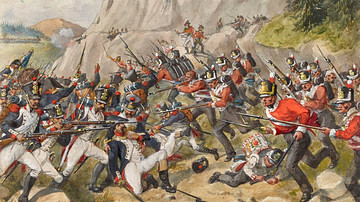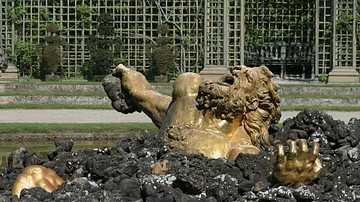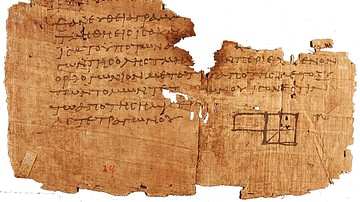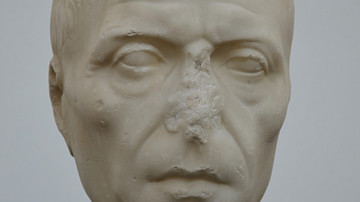Search Definitions
Browse Content (p. 37)

Definition
Peninsular War
The Peninsular War (1807-1814), also known as the War of Spanish Independence, was a major conflict of the Napoleonic Wars (1803-1815) that was waged in the Iberian Peninsula by Portugal, Spain, and the United Kingdom against the invading...

Definition
Linear B Script
Linear B script was the writing system of the Mycenaean civilization of the Bronze Age Mediterranean. The syllabic script was used to write Mycenaean Greek from c. 1500 to c. 1200 BCE. It was deciphered by Michael Ventris in 1952, and so...

Definition
Continental System
The Continental System was a major blockade of British trade imposed by French Emperor Napoleon I from 21 November 1806 to 11 April 1814. It was designed to cripple the British economy, thereby forcing Britain out of the Napoleonic Wars (1803-1815...

Definition
Linear A Script
Linear A script was used by the Minoan civilization centred on Crete during the Bronze Age. Used from around 1850 to around 1450 BCE, the script has never been deciphered. Artefacts bearing Linear A script, most commonly clay tablets, have...

Definition
Antikythera Mechanism
The Antikythera mechanism (also known as the Antikythera Device), dated to the late 2nd century/early 1st century BCE (roughly 205-60 BCE) is understood as the world's first analog computer, created to accurately calculate the position of...

Definition
Greek Alphabet
The Greek Alphabet developed from the Phoenician script at some point around the 8th century BCE. The earlier Mycenaean Linear B script, used primarily for lists and inventories, had been lost during the Greek Dark Age, and the technology...

Definition
Giants
In Greek mythology, the Giants (Gigantes) are an aggressive race of creatures who were born from Gaia (the Earth) after drops of Uranus' blood fell on the Earth after he was castrated. The Giants had great strength and were fearsome to look...

Definition
War of the Fourth Coalition
The War of the Fourth Coalition (October 1806 to June 1807) was a major conflict during the Napoleonic Wars (1803-1815). The Fourth Coalition consisted of Russia, Prussia, Saxony, Sweden, and the United Kingdom, against the First French Empire...

Definition
Ancient Greek Science
Ancient Greek science is a modern term for the application of systematic inquiry into the individual, the world, and the universe, which began in Ionia in the 6th century BCE with Thales of Miletus (l. c. 585 BCE) and continued through the...

Definition
Cato the Younger
Marcus Porcius Cato (95-46 BCE), better known as Cato the Younger or Cato of Utica, was an influential politician of the Roman Republic. As the great-grandson of Cato the Elder and a dedicated student of Stoicism, he believed in traditional...